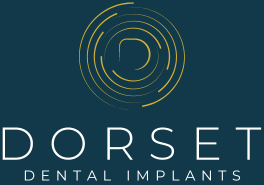10 Dental Statistics You Need To Know
Here at Dorset Dental Implants, we prioritise knowledge and understanding of our treatments above all else. This helps our patients to fully comprehend the procedures we offer and the advantages that our leading restorative dentistry options boast.
“Very friendly, transparent and professional service, lovely clinic too.” Sarah Austin, Wimborne
For more than 55 years, our team of restorative dentists have been placing and fitting many different types of dental implants to help patients suffering from tooth loss.
1. Comfortable and natural-looking
Dental implants are specifically designed to operate existing, natural teeth. Functioning as an exact replicate, dental implants after the required healing time will provide a strong, stable and long-lasting solution to missing teeth.
2. The UK is the biggest provider in Europe of dental implants
In the early days of the treatment, America was the leading installer of dental implants.
However, in the present day, the UK has become one of the biggest suppliers in Europe as more patients learn and understand the procedure better.
30% of the dental implant market is supplied by expert, experienced implantologists in the UK.
This has meant that fewer and fewer people need to travel abroad to access affordable and long-lasting implant solutions.
The Dorset Dental Implant Clinic employs only the best consultants, who have undergone further implant training and are registered members of the General Dental Council (GDC).
3. Dental implants strengthen the oral condition
Dental implants have a wealth of benefits.
Not only do they restore speech and chewing abilities, but they can also have a positive effect on strengthening your general oral health and improving your nutrition intake.
Find out what the procedure includes here.
4. Reduces the risk of bone loss in the mouth
Dental implants in comparison to dentures and bridges do not impact surrounding, existing teeth.
Denture wearers will know all too well the problems that dentures can cause for their oral condition, as wearing dentures for a repeatedly long time can cause severe bone loss, which the placement of dental implants prevents.
See: Weighing up the differences: Dentures VS Implants
5. Stable and secure
 Unlike dentures, dental implants are a permanent fixture and will not move around the mouth freely.
Unlike dentures, dental implants are a permanent fixture and will not move around the mouth freely.
Therefore, they offer a more comfortable alternative to dentures and can strengthen both gum and bone health.
One of the advantages of dental implants includes their stability.
Because they are so secure, sufferers of missing teeth can rest assured that their teeth will not come loose in the most inconvenient of times.
6. Longlasting
Dental implants are one of the triumphs of restorative dentistry.
It is because of their durability that they are considered one of the most secure solutions to replace gaps in the mouth.
With the correct care, dental implants can last a lifetime and are easy to maintain.
They will only require hygienist checkups, just the same as natural teeth, which would prevent any future complications.
7. Dental implants restore all abilities
Because dental implants act and operate the same as regular teeth, they will provide restored biting and eating ability.
This will mean those denture wearers will not need to avoid certain foods or stick to a certain diet in fear of dentures becoming loose.
8. The affordable option
What most patients don’t realise is that dental implants can be more cost-effective in the long run.
Initially appearing expensive, dental implants have proven to be the longest-lasting dental restoration that requires little maintenance.
When compared to alternative restorative solutions, over time dental implants can often actually work out cheaper.
See: Prices.
9. Constantly improving
Dental implants were invented in the early 1950s accidentally by an orthopaedic surgeon, Per-Ingvar Branemark. Discover the history here.
However, it is during the last thirty uses, due to state-of-the-art technology, that dental implants have significantly improved and developed.
There are now many variations and different types of dental implants designed to suit every type of patient.
They include:
- Full-arch dental implants
- All-on-Four dental implants
- Immediate Implants
- Delayed Implants
- Multiple Implants
10. Anything goes
Patients fitted with dental implants are not restricted.
They can eat whatever they choose, including apples, steaks and certain foods that require more chewing.
To book an appointment or speak with our leading dentists, call us on 01202 97 33 00 today.
